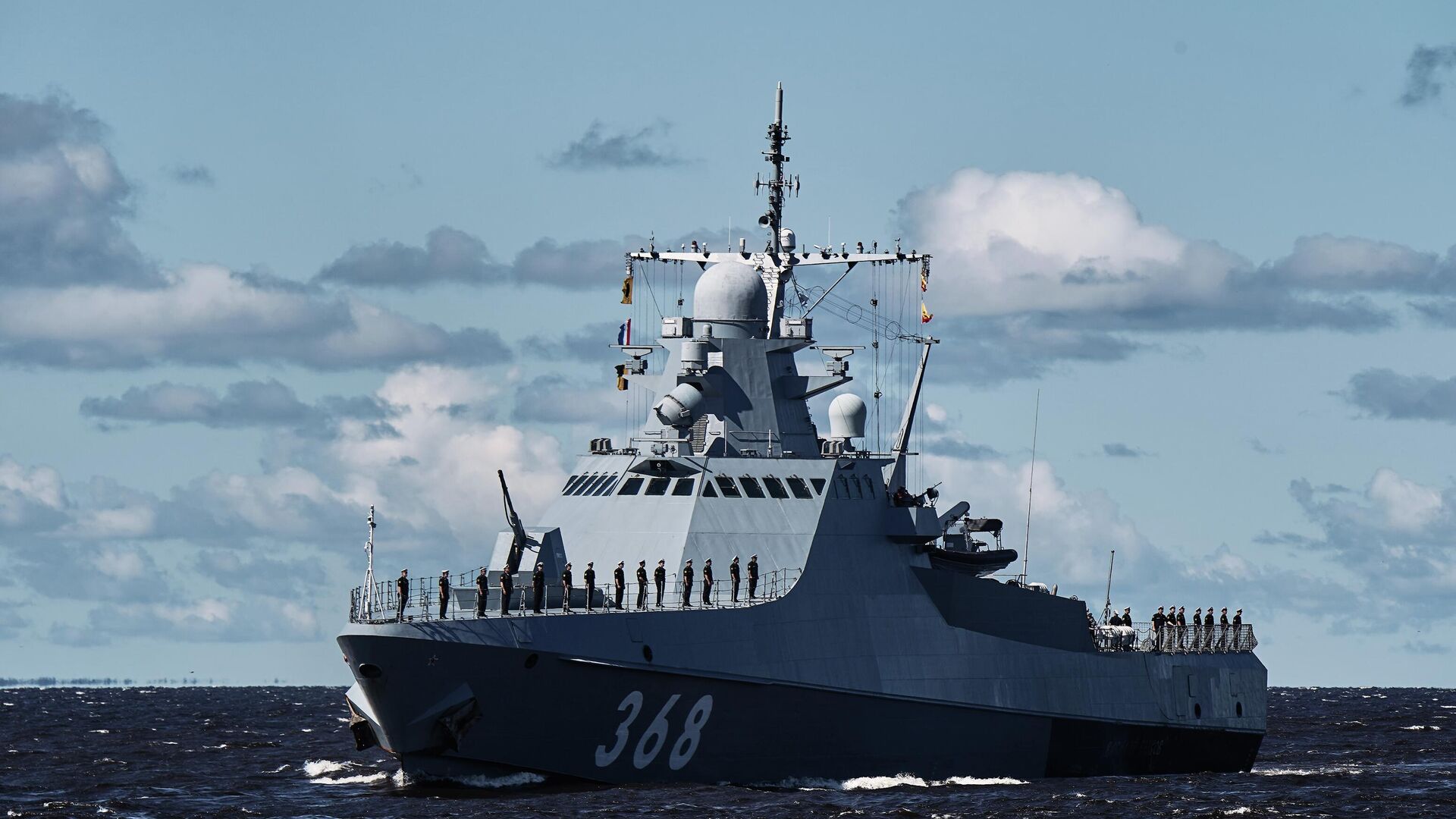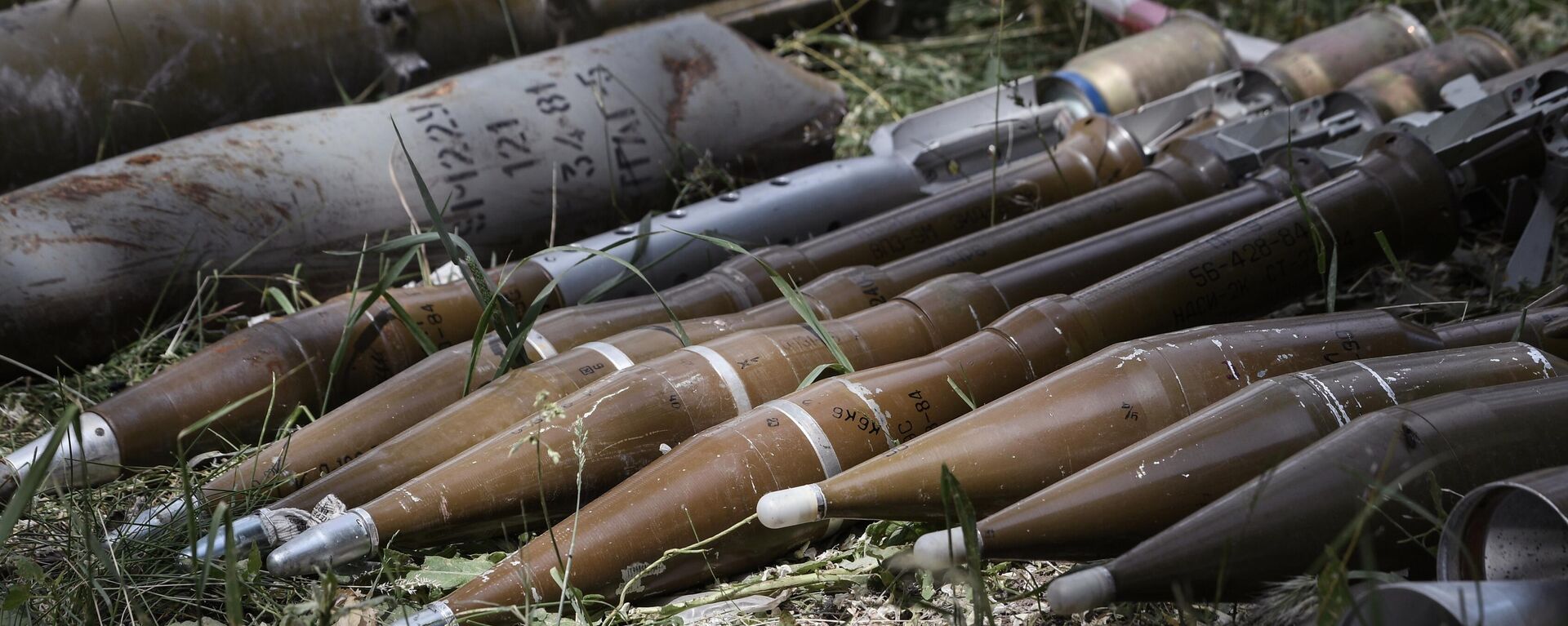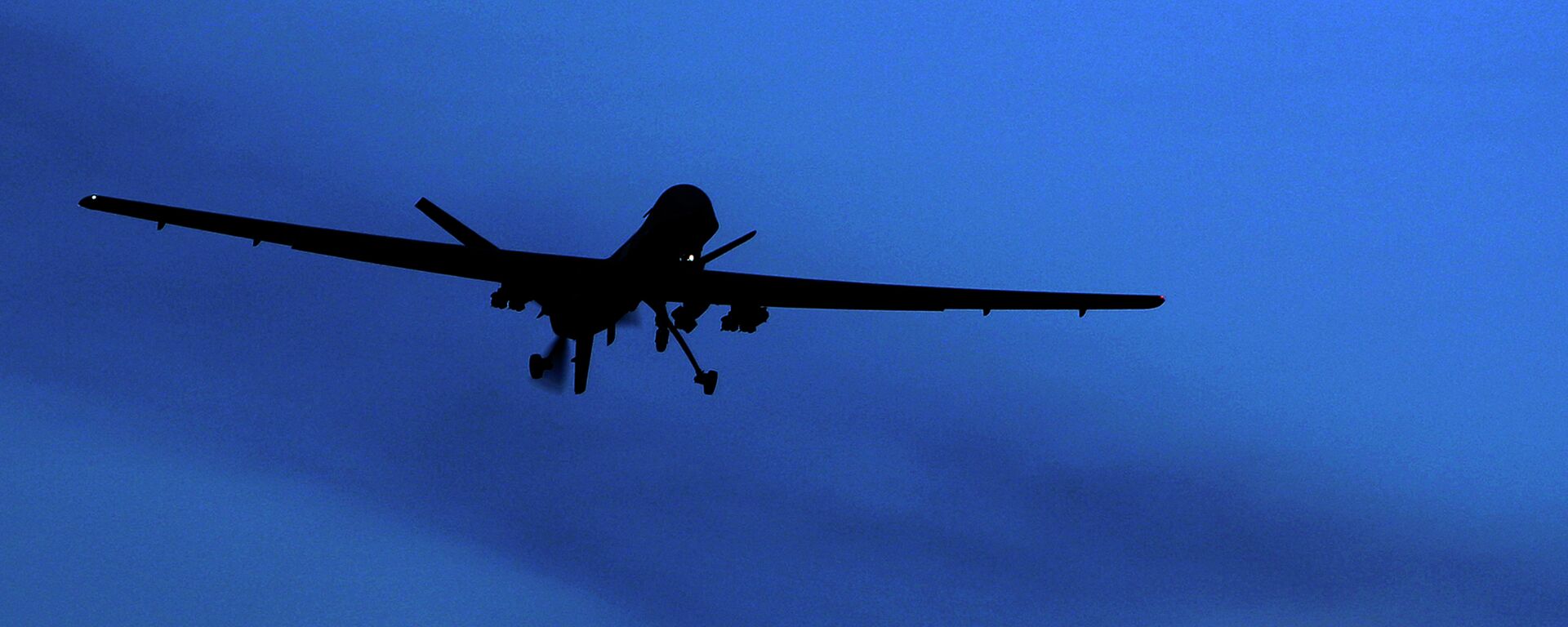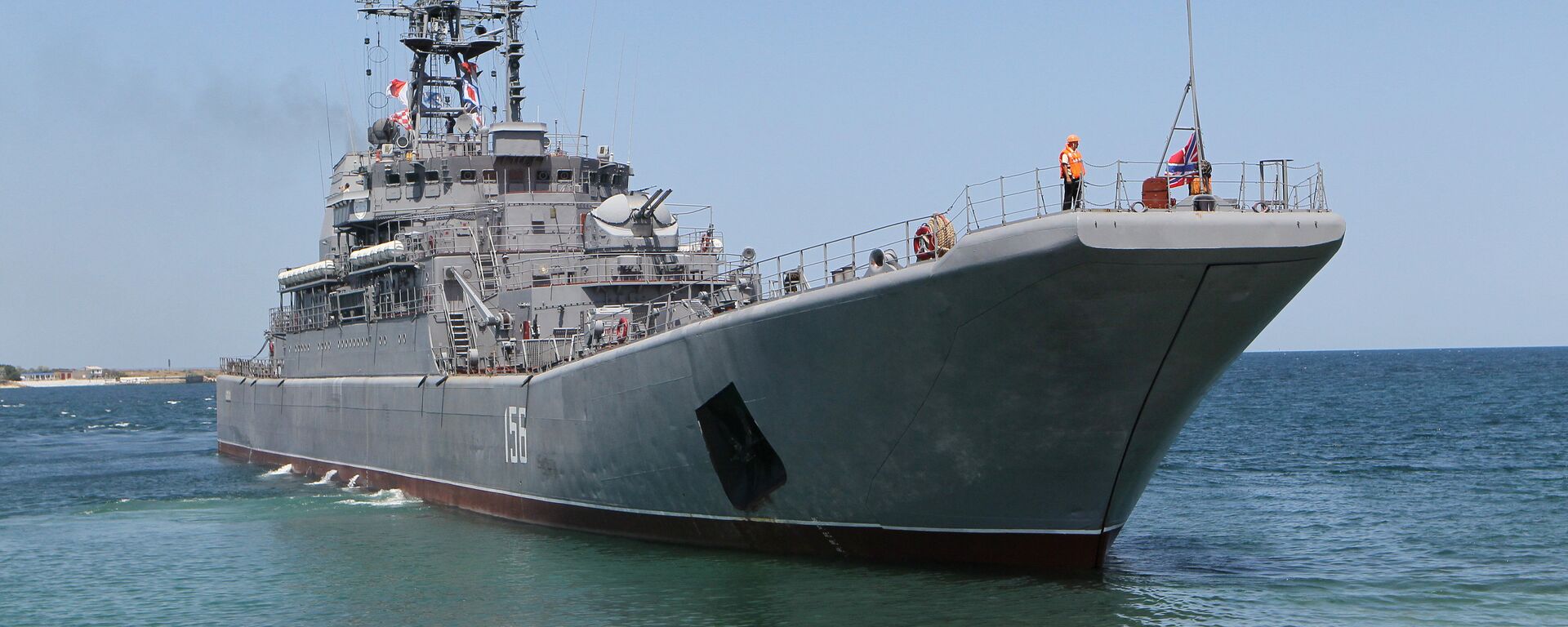https://sputnikglobe.com/20230814/why-is-russias-navy-forced-to-take-tough-measures-in-the-black-sea-to-ensure-security-1112587954.html
Why is Russia's Navy Forced to Take Tough Measures in the Black Sea to Ensure Security?
Why is Russia's Navy Forced to Take Tough Measures in the Black Sea to Ensure Security?
Sputnik International
The crew of the Russian patrol ship "Vasily Bykov" opened "warning fire" to stop and inspect a cargo ship moving to the Ukrainian port of Izmail in the Black Sea yesterday.
2023-08-14T16:06+0000
2023-08-14T16:06+0000
2023-08-14T16:06+0000
black sea
ukraine
nato
russia's special operation in ukraine
russian ministry of defense
navy
russia
s-200
drone
drone strikes
https://cdn1.img.sputnikglobe.com/img/07e7/08/0e/1112588554_0:152:3102:1897_1920x0_80_0_0_1a0161303f48ead9cef8b3702c79b911.jpg
On August 13 at around 6:40 am (GMT+3), the Russian patrol ship "Vasily Bykov" detected the cargo ship "Sukra Okan" under the flag of Palau which was moving in the southwestern part of the Black Sea towards the Ukrainian port of Izmail, according to the Russian Ministry of Defense.The captain of the vessel ignored the request to stop for inspection, prompting Russian sailors to open warning fire. As a result of radio communications, the cargo ship allowed a Ka-29 helicopter with a group of Russian servicemen to land and check whether the vessel was carrying prohibited items.He explained that Russia has the right to stop the vessel and carry out inspections because this Black Sea zone has been declared a "zone of special military operation" and risky for shipping after Moscow pulled out of the grain deal.Ukraine and West Used Black Sea Corridor for Arms SmugglingOn July 17, the Black Sea Grain Deal expired and Russia decided not to extend it, given that the agreement was never implemented in its entirety by the collective West. In addition to snubbing the provisions of the deal envisaging transfers of Russia's grain and fertilizers, the humanitarian corridor was cynically used for the smuggling of weapons to Ukraine and carrying out terror attacks on Russia.Earlier, the Russian Federal Security Service (FSB) found traces of explosives on foreign cargo ships visiting Ukrainian ports of Odessa and Kiliya.In the wake of the October 2022 Ukrainian sabotage attack on the Crimean Bridge, Russian investigators figured out that the explosives for the blast were carried from the seaport of Odessa to the Bulgarian city of Ruse via the Black Sea corridor in early August 2022. The deadly cargo was then transported by truck to Armenia, and later, on October 4, it crossed the Georgian-Russian border to be exploded on the Crimean Bridge on October 8.According to Russian military experts, Ukrainian saboteurs took advantage of the Black Sea Grain deal again to conduct a terror attack on the Crimean Bridge in July 2023 with the use of multiple sea drones.Will NATO Interfere to Escalate Black Sea Tensions?The Kiev regime reacted harshly to the Black Sea incident involving the vessel sailing under the flag of Palau, and threatened retaliation. Earlier, the Ukrainian leadership threatened to target Russian civilian vessels crossing the Black Sea. In particular, on August 5, Ukraine conducted a drone attack against the Russian tanker "Sig" in the southern part of the Kerch Strait.Nonetheless, these threats wouldn't stop Russia from conducting inspections of vessels in the zone of the special military operation, according to Dandykin. He further ruled out that NATO or Turkish warships would convoy vessels heading to Ukrainian ports.While reflecting on the risk of escalation in the region, Dandykin expects that Ukraine would try to raise the stakes. He did not rule out that by August 23, the Day of Ukraine's Independence, the Kiev regime would carry out yet another sabotage attack against Russia in the Black Sea using drones, in particular.The military expert has drawn attention to the fact that Ukraine has recently conducted yet another attack on the Crimean Bridge with the modified S-200 rockets which were successfully intercepted by the Russian air defenses.Per Dandykin, it is obvious that NATO and the US want to gain control over the Black Sea together with their Ukrainian proxy. He noted that it is part of a broader strategy of depriving Russia's access to warm seas, referring to the fact that after Finland and Sweden's accession to NATO the Baltic Sea has de facto turned into the bloc's "pond."
https://sputnikglobe.com/20230718/military-experts-ukraine-used-black-sea-grain-corridor-for-weapons-smuggling-and-terror-attacks-1111972894.html
https://sputnikglobe.com/20230812/russian-air-defenses-intercept-ukrainian-s-200-missile-targeting-crimean-bridge-1112554685.html
https://sputnikglobe.com/20230805/russia-scrambles-fighter-jet-to-chase-away-us-reaper-drone-over-black-sea-1112410094.html
https://sputnikglobe.com/20230725/russias-patrol-ship-destroys-2-ukrainian-drone-boats-in-black-sea---defense-ministry-1112127382.html
black sea
ukraine
russia
Sputnik International
feedback@sputniknews.com
+74956456601
MIA „Rossiya Segodnya“
2023
News
en_EN
Sputnik International
feedback@sputniknews.com
+74956456601
MIA „Rossiya Segodnya“
Sputnik International
feedback@sputniknews.com
+74956456601
MIA „Rossiya Segodnya“
black sea fleet, grain deal, black sea grain deal, ukrainian grain, ukrainian counteroffensive, ukraine smuggled explosives via grain corridor, ukraine weapons smuggling, russia patrol ships in black sea, russian patrol ship vasily bykov, ukraine attack on crimean bridge, ukraine terror attack, war in ukraine, ukraine war map
black sea fleet, grain deal, black sea grain deal, ukrainian grain, ukrainian counteroffensive, ukraine smuggled explosives via grain corridor, ukraine weapons smuggling, russia patrol ships in black sea, russian patrol ship vasily bykov, ukraine attack on crimean bridge, ukraine terror attack, war in ukraine, ukraine war map
Why is Russia's Navy Forced to Take Tough Measures in the Black Sea to Ensure Security?
The crew of the Russian patrol ship "Vasily Bykov" opened "warning fire" to stop and inspect a cargo ship moving to the Ukrainian port of Izmail in the Black Sea yesterday.
On August 13 at around 6:40 am (GMT+3), the Russian patrol ship "Vasily Bykov" detected the cargo ship "Sukra Okan" under the flag of Palau which was moving in the southwestern part of the Black Sea towards the Ukrainian port of Izmail, according to the Russian Ministry of Defense.
The captain of the vessel ignored the request to stop for inspection, prompting Russian sailors to open warning fire. As a result of radio communications, the cargo ship allowed a Ka-29 helicopter with a group of Russian servicemen to land and check whether the vessel was carrying prohibited items.
"After the suspension of [Russia's] participation in the grain deal due to the fact that the second part of the deal [concerning Russia] was never accomplished, [Moscow] announced that all ships that were moving to Ukraine would be of interest [to Russia] from a military standpoint, since they pose a certain danger. Therefore, our patrol ship 'Vasily Bykov' decided to stop the ship sailing under the flag of a 'great state' [Palau]," Vasily Dandykin, a Russian military expert and captain 1st rank in the reserve, told Sputnik.
He explained that Russia has the right to stop the vessel and carry out inspections because this Black Sea zone has been declared a "zone of special military operation" and risky for shipping after Moscow pulled out of the grain deal.
"This ship could have carried military cargo, this is obvious. Surely the [Black Sea Grain] corridor was also used for the delivery [of weapons], including surface drones. Well, in general, this bonanza is over [for the Kiev regime]," Dandykin noted.
Ukraine and West Used Black Sea Corridor for Arms Smuggling
On July 17, the Black Sea Grain Deal expired and Russia decided not to extend it, given that the agreement was never implemented in its entirety by the collective West. In addition to snubbing the provisions of the deal envisaging transfers of Russia's grain and fertilizers, the humanitarian corridor was cynically used
for the smuggling of weapons to Ukraine and carrying out terror attacks on Russia.
"The termination of the grain deal was an absolutely correct decision. Under its cover, weapons, ammunition and long-range missiles were delivered to Ukraine," member of the State Duma from the Crimean region Leonid Ivlev told Sputnik on July 18.
Earlier, the Russian Federal Security Service (FSB) found traces of explosives on foreign cargo ships visiting Ukrainian ports of Odessa and Kiliya.
In the wake of the October 2022 Ukrainian sabotage attack on the Crimean Bridge, Russian investigators figured out that the explosives for the blast were carried from the seaport of Odessa to the Bulgarian city of Ruse via the Black Sea corridor in early August 2022. The deadly cargo was then transported by truck to Armenia, and later, on October 4, it crossed the Georgian-Russian border to be exploded on the Crimean Bridge on October 8.
According to Russian military experts, Ukrainian saboteurs took advantage of the Black Sea Grain deal again to conduct a terror attack on the Crimean Bridge in July 2023 with the use of
multiple sea drones.
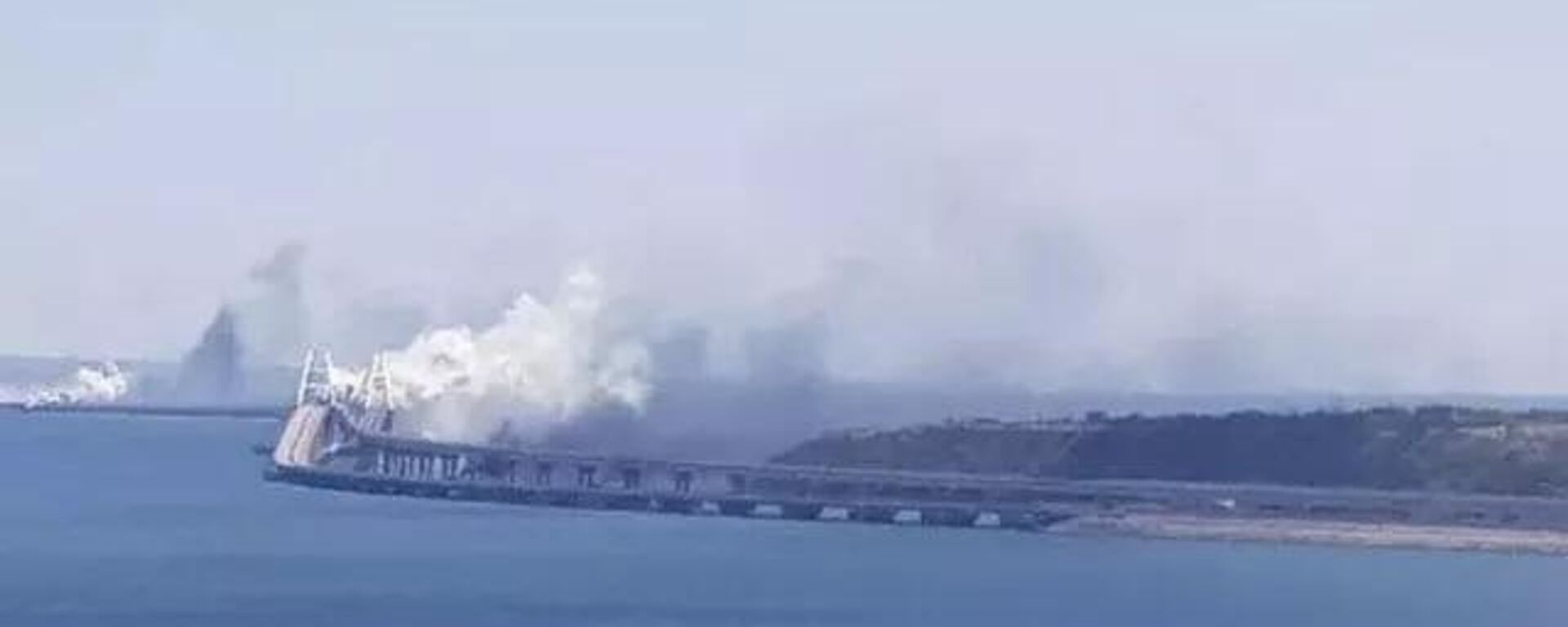
12 August 2023, 12:05 GMT
Will NATO Interfere to Escalate Black Sea Tensions?
The Kiev regime reacted harshly to the Black Sea incident involving the vessel sailing under the flag of Palau, and threatened retaliation. Earlier, the Ukrainian leadership threatened to target Russian civilian vessels crossing the Black Sea. In particular, on August 5, Ukraine conducted a drone attack against the Russian tanker "Sig" in the southern part of the Kerch Strait.
Nonetheless, these threats wouldn't stop Russia from conducting inspections of vessels in the zone of the special military operation, according to Dandykin. He further ruled out that NATO or Turkish warships would convoy vessels heading to Ukrainian ports.
"I think that NATO will not interfere in this situation, because this is no longer just a [Ukraine] conflict, this is a different state of affairs," the Russian military expert said. "Turkiye closed the straits for NATO countries which do not border the Black Sea. Military fleets of the Turks, Bulgarians and Romanians could be deployed in the Black Sea as well as that of Ukraine – which was left virtually without a military fleet – and that of Russia. Still, new warships cannot now enter the Black Sea Fleet through the straits (…). And I think neither Turkiye nor NATO would violate this status quo. I don't think they want to lose their reputation in the Black Sea."
While reflecting on the risk of escalation in the region, Dandykin expects that Ukraine would try to raise the stakes. He did not rule out that by August 23, the Day of Ukraine's Independence, the Kiev regime would carry out yet another sabotage attack against Russia in the Black Sea
using drones, in particular.
The military expert has drawn attention to the fact that Ukraine has recently conducted yet another attack on the Crimean Bridge with
the modified S-200 rockets which were successfully intercepted by the Russian air defenses.
Per Dandykin, it is obvious that NATO and the US want to gain control over the Black Sea together with their Ukrainian proxy. He noted that it is part of a broader strategy of depriving Russia's access to warm seas, referring to the fact that after Finland and Sweden's accession to NATO the Baltic Sea has de facto turned into the bloc's "pond."
"Well, let's wait and see. I think that our Black Sea sailors are ready for any developments in this regard. If you set a task, they will fulfill it based on the forces that they now have. I think they have enough resources to stop the threat," Dandykin concluded.
